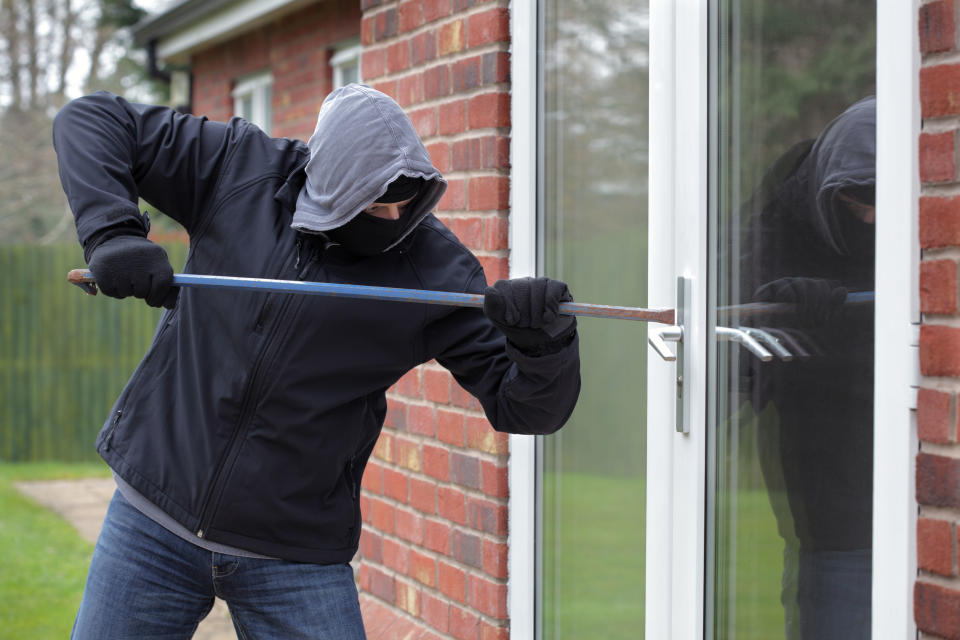Police now attending scene of every home burglary, police chiefs say
Officers are attending every home burglary in England and Wales following a pledge to roll out the policy, police chiefs have said.
The National Police Chiefs’ Council (NPCC) committed forces to attending all home burglaries in a new set of standards announced last year that they hoped would result in more crimes being solved and more criminals prosecuted.
The NPCC has now confirmed that all 43 forces in England and Wales have been implementing the policy since March.
Deputy Chief Constable Alex Franklin-Smith, the NPCC’s lead for burglary, described it as a “milestone” but said it was “only the first step” in tackling the crime.
He said: “We want to be bringing more offenders to justice, we want to be gathering more evidence, and we want to be improving detection rates. We expect to be judged on the results the public see.”
He added: “Burglaries are an insidious crime. They do not just involve the loss of personal possessions, which in itself is very distressing, but they are also extremely invasive and can make people feel unsafe in their own homes.”

Under the plan, forces prioritise attendance where people’s homes have been burgled, rather than outbuildings and garden sheds.
At the time it was first announced in October last year, Ken Marsh, chairman of staff association the Metropolitan Police Federation, and some political leaders questioned how the plan would work, warning that without proper resources it could put additional pressure on already stretched officers.
There was a national recruitment drive to replace the 20,000 officers axed during previous austerity measures which was seen as a way to potentially cover some of the extra staffing required to attend every burglary.
Police leaders had also been pushing the Government to boost health and social care provision so that officers have to deal with fewer non-crime related calls.
The Home Office Counting Rules for burglary have been changed to split the existing classification of residential burglary into two components – residential burglary of a home and residential burglary of unconnected building. There is also a separate sub-category to cover burglary in business and commercial properties.

Mr Franklin-Smith said: “The number of burglaries is at an all time-low, down more than 50 per cent over the past decade, but we are not complacent.
“We will continue to prioritise preventing these offences, targeting repeat offenders and organised crime groups and solving as many burglaries as we can.”
Out of 148,764 residential burglaries recorded by police forces in England and Wales in 2021/22, just 3.5% (5,236) resulted in a charge or summons. Almost 72% of the investigations were closed with no suspect identified (106,632).
The latest number of reported burglaries is lower than in previous years, probably down to periods of lockdown during the coronavirus pandemic when fewer crimes were committed.
Chief Constable Andy Marsh, the College of Policing chief executive, said: “The commitment is a necessary and welcome step towards regaining and improving community trust by returning to the fundamentals of policing. It will enable police officers to get more of the basics right and help lock up offenders.
“It will make forces more accountable within their own communities, bring more consistency to our responses to burglary, and help to improve detection rates. Policing should be able to deliver more of what the public rightly expects of it.”
Home Secretary Suella Braverman said: “Burglary is an awful crime which must be tackled and that’s why I am delighted to see that police forces across England and Wales have fulfilled their commitment to attend all domestic burglaries. This will help increase public confidence and see more criminals caught.”
John Hayward-Cripps, the Neighbourhood Watch Network chief executive, described the news as “reassuring” but added: “This alone will not be enough to deter would-be burglars.”
He urged people to make properties less attractive to criminals, to share information about attempted thefts and to look out for those vulnerable residents who are at risk.

 Yahoo News
Yahoo News 
